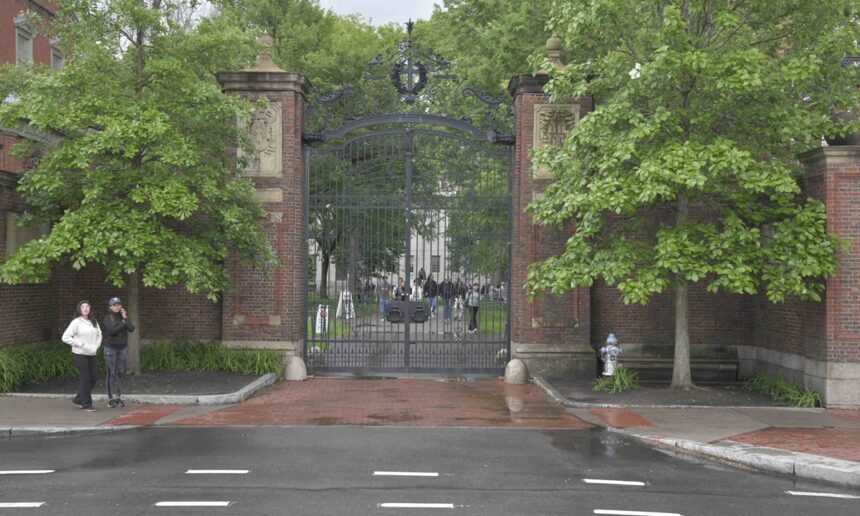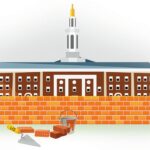By Zhang Han
Authorities and some universities in China’s Hong Kong and Macao special administrative regions have extended an olive branch after students and scholars in Harvard University were sent reeling by the US administration’s attempt to ban the renowned institution from enrolling international students.
Though a federal judge halted on Friday the Trump administration’s attempts to block international students from attending Harvard University, its implications are set to be profound, with some Chinese students said to change plans due to concern over unpredictable disruptions to research and their future.
US Department of Homeland Security (DHS), on Thursday, ordered Harvard to be taken off the Student and Exchange Visitor Program (SEVP) certification, meaning Harvard can no longer enroll foreign students and existing foreign students must transfer or lose their legal status, a DHS statement claimed.
In a letter to Harvard community, which is obtained by the Global Times, Harvard University said that it condemns this unlawful and unwarranted action. It imperils the futures of thousands of students and scholars across Harvard and serves as a warning to countless others at colleges and universities throughout the country who have come to America to pursue their education and fulfill their dreams.
The Education and Youth Development Bureau of the Macao SAR government said on Saturday that it is closely monitoring the developments, according to its website.
The bureau has encouraged Macao universities to pay attention to the unfolding situation, assist affected students to transfer, and ensure their rights to pursue their studies. The specific policies will be made by the universities. The Bureau has been contacting local students enrolled in Harvard to provide consultation and assistance, according to the statement.
To help build Macao into a hotspot for international high-end talent, the bureau will continue to promote Macao universities to attract outstanding students from various regions to pursue their studies in Macao through diverse enrollment channels and study support measures, and promote the internationalization of Macao’s higher education.
Earlier on Friday, the Hong Kong University of Science and Technology (HKUST) issued an open invitation to international undergraduate and postgraduate students currently enrolled at Harvard University, as well as those holding confirmed offers for Harvard degree programs, to continue their academic pursuits at HKUST.
HKUST is extending this opportunity to ensure talented students can pursue their educational goals without disruption, according to the university which vowed “unconditional offers, streamlined admission procedures, and academic support.”
HKSAR Secretary for Education Christine Choi Yuk-lin posted on Facebook Friday that the SAR’s government has appealed to its universities to “take positive actions” in enrolling the affected students.
International students made up 27 percent of Harvard’s student body in the 2024-25 academic year. “Without its international students, Harvard is not Harvard,” read the university’s complaint, the Hill reported.
Chinese nationals made up a fifth of Harvard’s foreign student intake in 2024, Reuters quoted the university.
A Chinese student admitted to Harvard University’s graduate school of education this year, told the Global Times on Sunday that after learning the “heartbreaking news of a ban,” she has been watching the developments anxiously.
“I have an appointment for a visa interview in early June, and I am afraid of being rejected under current circumstances; even if a visa could be granted, I could be declined entry at the airport,” the student told the Global Times on condition of anonymity.
Some students are already facing delays and additional administrative processing in visa applications, Reuters reported, and incoming students and summer school attendees are the groups impacted most immediately.
“I am not familiar with the transfer procedures in the US; hopefully there will be schools willing to accept us,” the Chinese student said, adding that Hong Kong is an option.
An enrolled PhD candidate, after consulting a lawyer, suggested fellow students currently in US postpone plans to return to China for summer vacation, the Global Times learned on Saturday.
A Chinese scholar who is doing post-doctoral research at Harvard, told the Global Times Friday on condition of anonymity that he had canceled the plan for an overseas academic conference due to policy risks.
As more than 750 Indian students are another group heavily impacted by the possible ban, Congress leader and former Union minister P. Chidambaram, also a Harvard alumnus, said that “It is a retrograde move that will harm Harvard and, consequently, seriously hurt America,” the Hindu reported.
Canada has the largest share of international undergraduates. Connor Bitter, Harvard alumnus and education consultant, said, “This is more than a policy change. This is, for a lot of the students I work with, truly a generational disruption,” Canada Broadcasting Corporation reported on Saturday.
In the Friday lawsuit filed in Massachusetts Federal Court, Harvard claimed the administration’s actions violate the First Amendment, constitutional due process, and DHS’s own regulations, the Hill reported.
Though the ban has been temporarily halted, its impact is profound. A NYT report asked on Saturday, “If it happened to Harvard University, could it happen anywhere?” “This is a grave moment,” Sally Kornbluth, the president of the Massachusetts Institute of Technology, wrote in a message to her campus. Wendy Hensel, the president of the University of Hawaii, said that it was “reverberating across higher education.”
John Aubrey Douglass, a senior research fellow at the Center for Studies in Higher Education at the University of California, Berkeley, told the NYT that the implication (of the pending ban) is a growing and great chill on attracting academic talent to the US.
Higher education is one of the US’ most important “soft assets,” but they are being eroded at a striking pace by the unstable and harmful policies of the incumbent administration, said the above-mentioned Chinese scholar, who also said that he has accepted a job offer at a top-ranking university outside the US.













